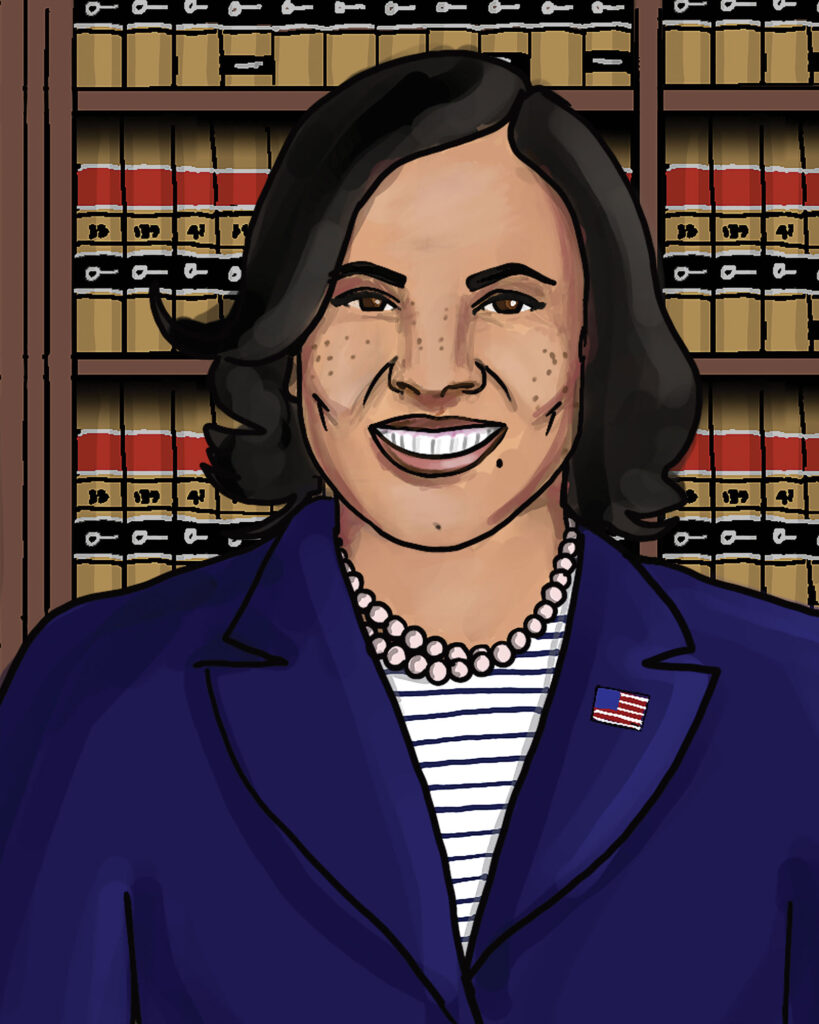
In our country, there are thousands of politicians and appointed government officials who claim to work hard for their constituents. But here in Massachusetts, we have a history of public servants who have made a real difference in the lives of the people they serve. From Ed Brooke and Ruth Batson to Mel King and Ayanna Pressley, many local public officials have fought long and hard to create real positive change in our community. None has worked harder than Rachael Rollins.
We have in our society a systemic problem with criminal justice that can be traced back to our very founding. From Crispus Attucks, the first person listed as killed in the American Revolution, Black Americans have always been on the receiving end of the worst police abuse, over-sentencing and unfair incarceration.
To take on this level of systemic injustice, it takes an exceptionally strong person, and to do it in such a way that the state and local law enforcement agencies you’re working to reform support you publicly and back you for higher office, that takes a very smart person. That’s what Rachael Rollins was able to do. Despite her well-justified reputation for an unyielding commitment to criminal justice reform, Rollins was able to work from inside the system in a most effective way to create real change in the system.
From the time of her nomination for the federal position she recently resigned from, many Republican politicians from southern states opposed her appointment. They claimed she was too radical. Why was she too radical for them? Well, it is because she was giving a real voice to the people that law enforcement is supposed to be serving. That is really scary to many Republicans, someone actually requiring the justice system be accountable to the community it serves.
Rollins took the input from her community and life experiences and used it to work to reform our state’s criminal justice system. She worked to create true power-sharing in government, a balance between the need for force and the need for leniency and understanding. One of the scariest things to those who opposed her reforms was that she was supported by many in our state’s law enforcement community.
Here in Massachusetts, we still have a ways to go to reach a truly fair criminal justice system that is colorblind. But many of the advances that have been made most recently are because of Rollins’ commitment to serve her people, not just Black people, but all of her people.
What about her error in judgement in relation to the Hatch Act, you ask. Well, these types of situations happen all the time with many national officials. During the last presidential administration, many of its members violated the Hatch Act, which bars federal employees from engaging in partisan political activities. After a Congressional hearing on that administration’s numerous violations of that law, one online story chronicled one political appointee’s 50 violations and the fact that she was never once held accountable for them. Yes, you guessed it, she was a white woman — another classic double standard. As for the other issue trotted out in the news headlines, soliciting and accepting gifts, well, everyone makes mistakes. None of us is perfect, but the key is to be accountable for our missteps and learn from them.
One thing that is clear to me is, when it comes to reforming our law enforcement and criminal justice systems, there is no better champion than Rachael Rollins. The only way we make this country live up to its values is to require change from within. Taking on a system that was founded on centuries of injustice is always hard. There are always naysayers who would put obstacles in our path. It takes a very smart and dedicated person to be able to do it while maintaining the support from people on all sides, as Rollins did. I can only hope moving forward that our community will never forget the one-of-a-kind brilliance and grit it took to get that done. This struggle for an equal justice system is far from over. Let us never forget how we got here and why it’s so important we continue to demand true equality for all.







